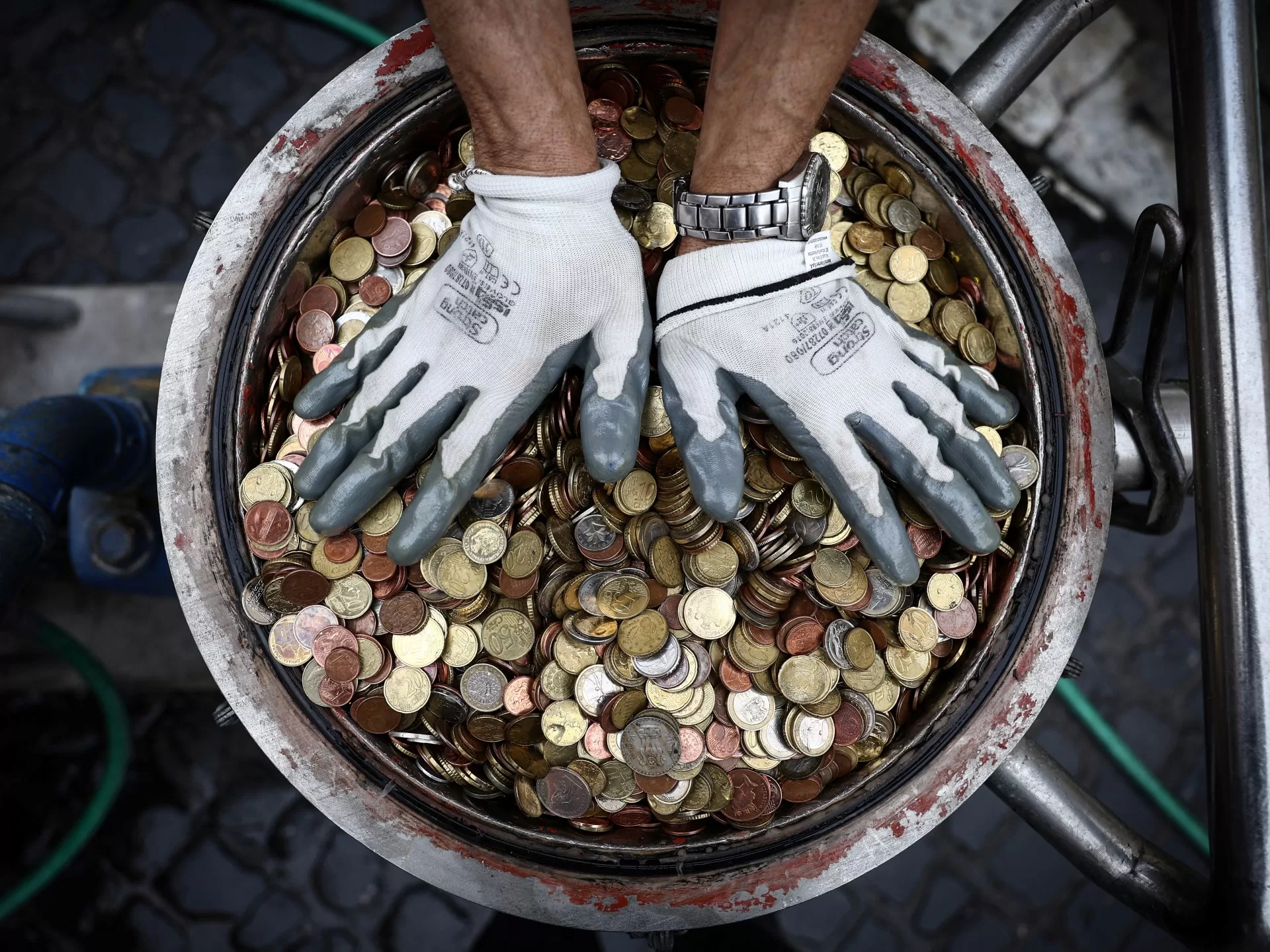As visitors’ coins splash into Rome’s majestic Trevi Fountain carrying wishes for love, good health or a return to the Eternal City, they provide practical help to people the tourists will never meet.
For hundreds of years, when in Rome, visitors have flocked to the fountain to make a wish, following a storied ritual. Few gave their coins a second thought.
Today, coins pile up for several days before they are fished out and taken to the Rome division of the worldwide Catholic charity Caritas, which counts the bucketfuls of change and uses them to fund a food bank, soup kitchen and welfare projects.
In 2022, Caritas collected 1.4 million euros ($1.5m) from the fountain and it expects to have gathered even more in 2023. The Italian capital is one of the world’s most visited cities with 21 million tourists.
Signs around the fountain explain that the change will go to charity – a thought that pleases many of the tourists posing by the landmark.
“I wanted to make a wish which is dear to my heart,” said Yula Cole from Brazil after throwing in a coin. “But I also know that this coin is not just staying there but will help needy people. I made a wish but hopefully this money will help other people’s wishes too.”
Day and night, throngs of people crowd around the fountain posing for photos. Legend says that if you throw a coin by the right hand over the left shoulder into the fountain, you will return to Rome. People eagerly add their own personal wishes.
“I am tossing a coin as they say if you toss a coin you come back to Rome and also because I want to make the wish to find love,” said Carola from Chile.
The Trevi Fountain, completed in 1762, covers one side of Palazzo Poli in central Rome with its statues of Tritons guiding the shell chariot of the god Oceanus, illustrating the theme of the taming of the waters.
It is where Italian film director Federico Fellini set one of the most famous scenes in cinema in La Dolce Vita, with Anita Ekberg wading into the fountain after midnight and beckoning Marcello Mastroianni to join her.
Wading into its waters today is forbidden and tourists face fines if they do.
Twice a week, up to four workers collect the coins, said Francesco Prisco, a manager at regional utility ACEA. The fountain is drained for cleaning twice a month.
“The collection and cleaning operations are carried out as quickly as possible to try to reduce the downtime of the fountain,” he said.
After the coins have been swept into a long line by a long-reach broom, they are sucked up by hoses and taken to Caritas’s office, where employee Fabrizio Marchioni spreads them across a huge table for drying.
Not just coins are fished from the fountain. Workers have removed jewellery, dentures, religious medals, and even umbilical cords.
Close to Rome’s main station is Caritas’s supermarket, known as the Emporium, which allocates food to needy residents who can purchase it with tokens on a card.
“I was a blacksmith but then I lost my position and my arthritis does not help in finding a new job. Luckily there are places like this Emporium,” said a man who gave his name only as Domenico.
Another man, Luigi, explained: “I was a builder and also the owner of a video surveillance system company before I lost my job. Places like this Emporium give concrete help.”
Back at the fountain, the coins stack up.
“I got told that if I toss in two coins my wishes will come true. So that’s why I did it,” said Chinese tourist Yuting.
